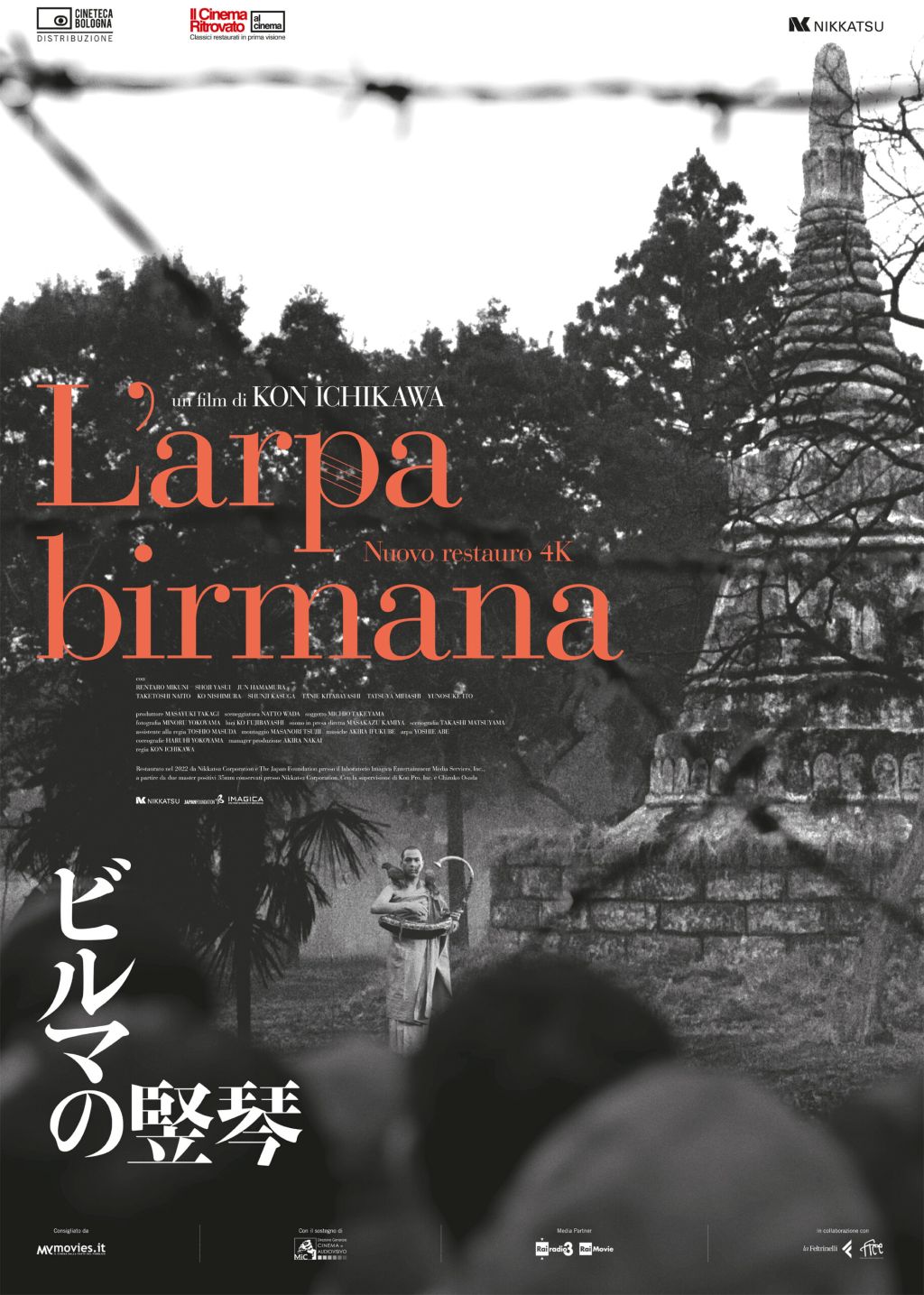During the Japanese army's retreat in Burma in July 1945, Private Mizushima plays the harp to boost his comrades' morale. After Japan's surrender, he is tasked with convincing a group of diehards to lay down their arms. The attempt fails, and Mizushima, the sole survivor, is saved by a Buddhist monk. Deeply moved, he decides to stay in Burma to bury the fallen, forgoing a return to his homeland. The film explores the pain of war, compassion, and the choice of a spiritual life.
Kon Ichikawa (born November 20, 1915, Ujiyamada – died February 13, 2008, Tokyo) was a Japanese film director and animator. He began his career in animation but gained international acclaim with anti-war dramas such as The Burmese Harp (1956) and Fires on the Plain (1959). He frequently collaborated with his wife Natto Wada, who wrote screenplays for many of his films. Ichikawa’s work spans genres from comedy to tragedy, including documentaries like Tokyo Olympiad (1965). He is regarded as one of Japan’s most versatile and influential postwar filmmakers
